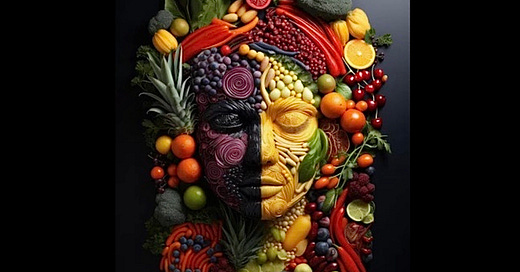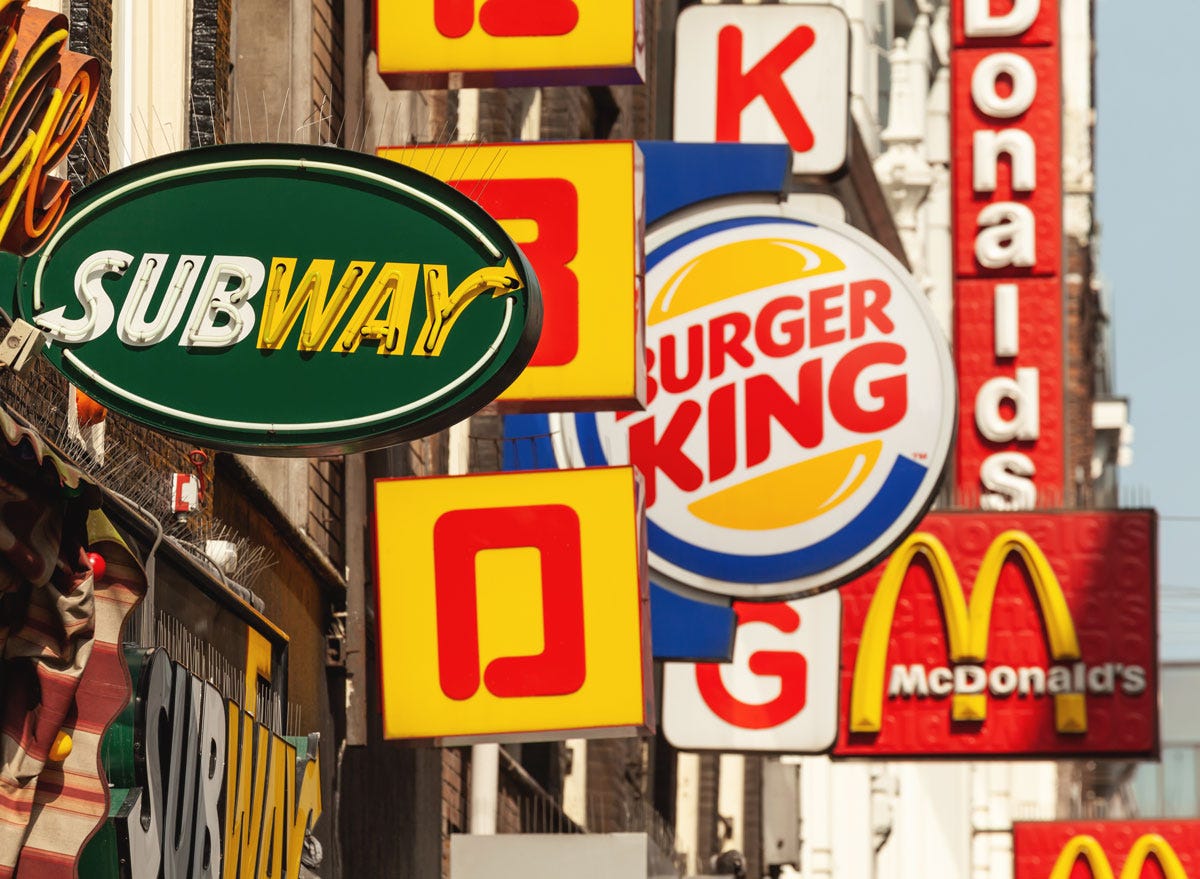Terminal Matter
It’s cruel what we’re fed in a place where our sleep-deprived, stress-induced bodies most need nourishment. I’m not in a hospital or office but in Atlanta’s Hartsfield-Jackson airport at 11 AM. I’m on a short layover from Miami, where I spent a month visiting my grandmother. I’ve been up since 5:30 AM and need food for the next five hours before reaching San Diego, three time zones away.
I pass a Shake Shack, Dunkin, and a crowded Chick-fil-A. A smoothie counter displays bananas that aren’t for sale. In a news kiosk near my gate, I fidget a flaccid fruit cup before dropping it and over thirty dollars on a half-liter Evian and two bags of unsalted nuts, of which I make short work while the plane’s still taxiing.
This is every airport in America. We’re so aggrieved by the TSA’s twenty-year regime, yet we ignore the real terrorists.
Ultra-processed foods are now over 60% of Americans’ diet, and they’re increasingly and consistently linked to the metabolic health crisis and rise in illnesses including cancer, heart disease, obesity, and type-two diabetes.
Even in the noisy, tribal arena of competing nutritionists and health gurus, not one incorporates ultra-processed foods in their regimens. It’s an alarming disconnect.
Food is Medicine
Being raised with hippie and traditional influences, I’ve always been health-conscious. However, I became personally deliberate about food when I was ten and opened a biology textbook in a Copenhagen library. It explained how our bodies react to food just as chemicals react when mixed.
Optimal foods provoke optimal reactions. They revitalize our bodies and minds by supplying the nutrients our cells need to heal and reach their potential. Suboptimal foods that have insufficient nutrients or harmful ingredients provoke suboptimal reactions.
It was elementary, but the idea stuck: all foods we eat are either optimal or suboptimal. In the limit, then, food is medicine or poison. If it’s not healing it’s harming. Thus declared Hippocrates, “Let food be thy medicine, and thy medicine be thy food.”
I’ve since learned how nutrition is individualized, the interdependency of diet, sleep, movement, environment, social connections, spiritual health, the mind-body connection, and the significance of our attitudes toward food. But I’m steadfast in eating whole foods and avoiding ultra-processed ones.
Great-grandmother Test
Whole foods perish not long after purchase. They’re in my fridge or a bowl on the counter. Much of the animal kingdom would kill for them. They’re a single ingredient that my great-grandmother would recognize. They’re made of nutrients and live bacteria. Living food for the living.
Ultra-processed foods come in bags and boxes that can weather nuclear fallout. Even the most steely bugs won’t touch them. They contain ingredients that our great-grandmothers would neither recognize nor pronounce. They’re dead on arrival and take longer to leave our bodies. Dead food for the dying.
I implore that you apply this test to everything you eat and drink. What we consume becomes us. Our foods are the building blocks for our body’s continuous regeneration. Is your food healing or harming you? If you eat shit, guess what you’re gonna look and feel like? Small decisions add up. Choose your medicine.
The night before my flight back to San Diego last week, my 93-year-old grandmother packed me sliced mango and kiwi, carrots, a banana, and unsalted almonds. Food that her mother—my great-grandmother—would have recognized and packed for her.






That picture at the end is chilling in a way. I'm allergic to nuts but still what your grandma packed sounds better.
So true! We usually pack healthy snacks when traveling--or I may just decide to make the travel day a fasting day: better to use it to let my body recover from feeding than feeding it with the junk that passes for airport food.
There is one bright spot, though: I've recently seen healthier food vending machines at several airports like LAX and SNA. Farmer's Fridge seems like a good alternative, and I hope they succeed:
https://www.farmersfridge.com/